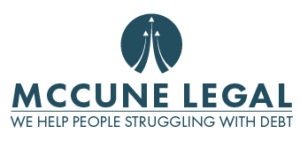One of the benefits of filing for bankruptcy is that you have options. And you owe it to yourself to explore and get professional guidance as to which one is the right fit for your individual situation. Although Chapter 7 is a popular path clients choose to take, it is not the best choice for everyone. Let’s take a moment to discuss some of the differences between Chapter 7 and Chapter 13 bankruptcy.
Fast And Sometimes Furious
In terms of speed, Chapter 7 is the quicker way for a debtor to get to Discharge. However, it can be more painful given some assets may be liquidated in the process. Despite the fact that Chapter 13 does take much longer to reach Discharge, it is known for being a much friendlier atmosphere for a debtor. That being said, filing for Chapter 13 bankruptcy comes with some pre-qualifiers.
Often referred to as a “wage earner reorganization,” Chapter 13 requires that you be a person with regular income in order to be eligible. In addition to wages, there are lots of different types of income that qualify including pensions, social security, disability, and contributions from others.
You Deserve To Keep What’s Yours
A huge benefit to Chapter 13 is that the debtor is allowed to keep and use all property. As an added bonus, they have the ability to resolve their debt and protect non-exempt assets gained from future income.
Basically, Chapter 13 acts as a debtor-friendly 3 to 5 year repayment plan. Contrary to popular belief, you do NOT have to pay all your debts through Chapter 13 — that’s just not true! The reality is there are instances where the debtor pays 100 percent of all timely filed, allowed claims. But those are exceptions and most definitely not the rule. The majority of Chapter 13 bankruptcy cases have a very small repayment to unsecured creditors.

Filing for Chapter 13 offers plenty of options for finding relief during what can be an extremely stressful situation. And many of these options are not available with Chapter 7 bankruptcy. As a debtor, it doesn’t have to be all doom and gloom. There is a light at the end of the dark, debt-filled tunnel.
Despite taking a long time to complete, the pros of Chapter 13 have proven to significantly outweigh the cons. At the very least, you would be wise to learn more about the ins and outs of Chapter 13 bankruptcy.
That’s where McCune Legal is ready and waiting to fill in the blanks. Any questions you have about Chapter 13, or any bankruptcy-related concerns, can be answered by our experienced team of bankruptcy attorneys. Go ahead and make the call. You’ll be glad you did.

